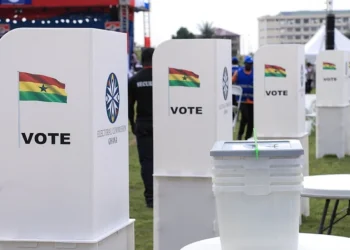The Organization of the Petroleum Exporting Countries (OPEC) is setting its sights on Namibia as the next potential addition to its ranks, as the southern African nation gears up to become a significant player in the global oil market by 2030.
With recent discoveries by energy giants TotalEnergies and Shell estimated at a substantial 2.6 billion barrels, Namibia’s oil industry is primed for expansion, drawing the attention of OPEC for possible collaboration.
According to insights from an African industry official, OPEC’s interest in Namibia comes at a time when the organization has experienced departures from members like Angola in recent years. As Namibia prepares to embark on its journey towards becoming Africa’s fourth-largest oil producer, OPEC sees an opportunity to engage the nation in discussions about its potential role in the global energy market.
The initial step for OPEC would involve inviting Namibia to join its Charter of Cooperation, a platform dedicated to fostering dialogue and collaboration among oil-producing nations. While Brazil recently became a member of this charter in January, OPEC envisions a deeper partnership with Namibia, potentially culminating in full membership in the future.
NJ Ayuk, the executive chairman of the African Energy Chamber, revealed that his organization has been facilitating discussions between OPEC and Namibia. He noted that OPEC has initiated a “charm offensive” to woo Namibia, although the outcome of these talks remains uncertain.
Despite OPEC’s overtures, official confirmation from the organization is still pending. However, OPEC Secretary-General Haitham Al Ghais hinted at ongoing discussions with several nations regarding potential charter membership, though specific countries were not named.
In February, Al Ghais met with Namibian Minister of Mines and Energy Tom Alweendo during a conference in Nigeria, where the prospect of collaboration between OPEC and Namibia under the charter of cooperation was raised.
Meanwhile, last year, Namibian Petroleum Commissioner Maggy Shino expressed interest, opens new tab in joining the OPEC “family”, according to a report by S&P Commodity Insights, known as Platts.
Yet in March, minister Alweendo stated that OPEC membership was not on the cards and did not want to be drawn on whether Namibia was considering joining the charter. “We haven’t been approached by anyone to join OPEC. OPEC members are petroleum exporting countries and we are not there yet. That is a consideration only after we have started to produce,” he said.
Talks Likely to Continue
Talks between OPEC and the Namibian government will likely continue in late April. Meanwhile, OPEC’s Al Ghais is scheduled to deliver an address to a Namibian energy conference.
About 2.6 billion barrels of oil have been discovered in Namibia this decade so far, Pranav Joshi of energy consultancy Rystad Energy disclosed.
In addition to Total and Shell, firms including Chevron, Rhino Resources, Eco Atlantic Oil & Gas and Galp Energia are conducting exploration and appraisal activities.
Based on the existing discoveries, Namibia is looking at 700,000 barrels per day (bpd) of peak production capacity by the next decade, Joshi estimated.
That is smaller than Angola’s output of some 1.1 million bpd but Joshi noted Namibia’s number could rise with further successful exploration.
Angola quit OPEC in December of last year, 2023 over a lower-than-expected output ceiling it received from OPEC+ whose members are curbing production to help support prices.
As Namibia routes its path towards oil production, the country stands at a pivotal juncture. With OPEC extending its hand in partnership, Namibia may soon find itself at the forefront of Africa’s oil resurgence, poised to contribute significantly to the continent’s economic development and energy security.
READ ALSO: Government’s National Service Policy to Enhance Capacity




















